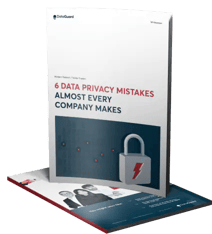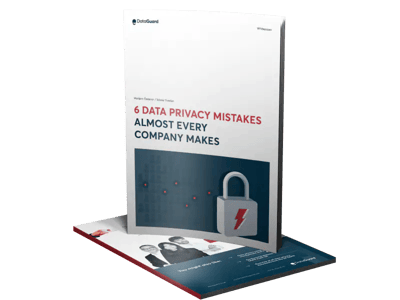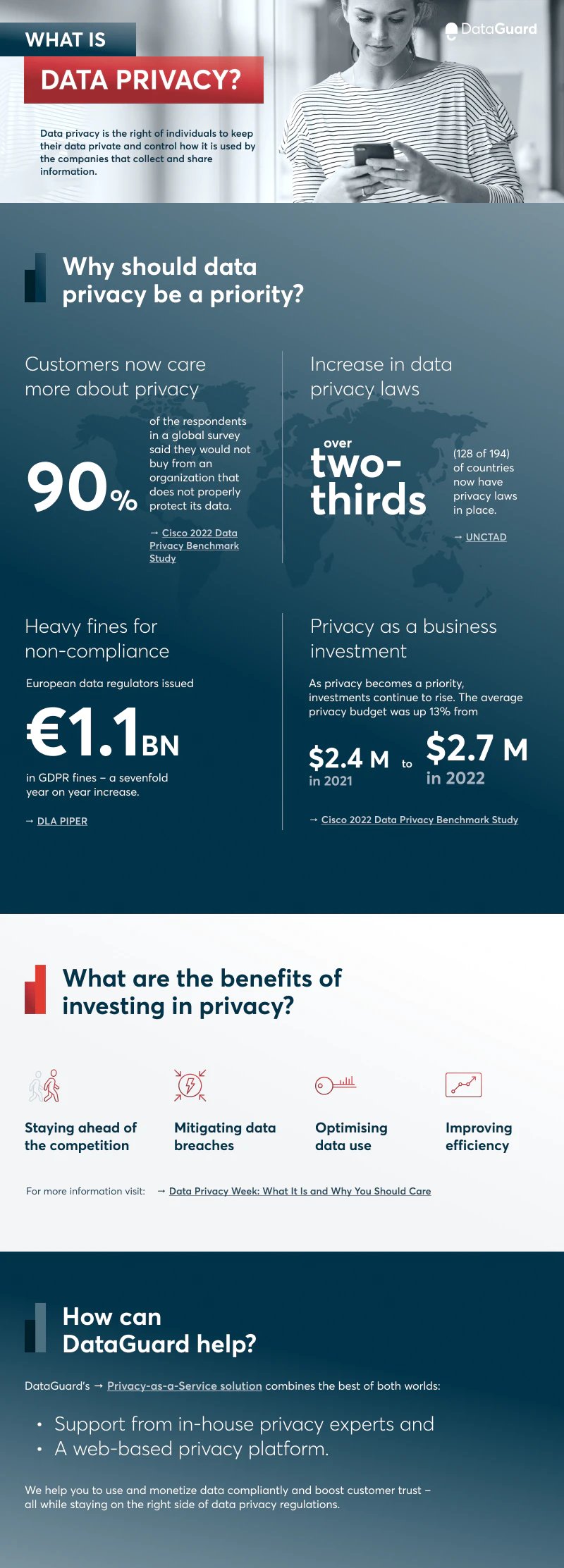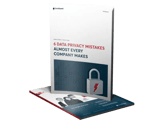Today 97% of businesses use data to power their businesses. There is no doubt that data has become the world’s most valuable commodity. For businesses, this means data can provide unprecedented insights to connect better with your customers. However, with companies processing large volumes of customers’ information, things can easily go wrong if steps are not taken to keep user data secure.
With the significant increase in high-profile data breaches in recent years, consumers and governments increased their focus on data privacy.
As a part of that, Data Privacy Day was expanded into Data Privacy Week by National Cybersecurity Alliance to spread awareness about data privacy.
So, what exactly is Data Privacy Week?
Taking place from January 22 – 28, 2023, Data Privacy Week is an annual effort to spread awareness about online privacy among individuals and companies. It has two main goals:
- Improving the individual’s understanding of their control over their data.
- Help companies understand the importance of respecting the privacy of their users’ data.
We’ve put together this article to help you understand what you, as a business, can do this Data Privacy Week to address these topics. Before that, let’s look at data privacy and its importance.
What is data privacy?
While it is often confused with cybersecurity, data privacy goes far beyond safeguarding data. It is about how companies are responsible for using the personal information they collect ethically and legally.
Why? Because data privacy is an individual’s right to keep their data private. Consumers have the right to know what data companies collect about them and how they use it. It doesn’t mean companies can no longer use data for marketing, but it requires them to be transparent about how they use it. As privacy laws continue to expand, non-compliance can also present the risk of heavy fines and litigation. Some ways you can use your customer information ethically include,
- Not sending your customers with unwanted emails,
- Not selling their information to third parties,
- And being transparent about the use of consumer data.
Now let’s look at key data privacy concepts
- Data processing refers to any operation done on personal data. It includes but is not limited to collecting, storing, analysing, organising, classifying, modifying, amending, retrieving, using, or revealing data.
- Data subject refers to the person whose personal data is being processed.
- Data protection authority is the national body responsible for enforcing and monitoring local data privacy laws.
- Personal data is data that can identify an individual directly or indirectly. It is usually classified as sensitive personal data and general personal data.
- Sensitive personal data is a subset of personal data which could cause harm to the individual if leaked or misused.
Data privacy has become a deciding factor in the today’s business landscape. Let’s see why focusing on data privacy is crucial for companies’ success.
Why should data privacy be a priority?
With several high-profile data breaches in the news, data privacy has become a necessity rather than a ‘nice-to-have’ feature for companies. Here is why:
-
Customers’ increased focus on privacy
Customers are concerned about their data privacy now more than ever. According to a survey conducted by Cisco, 33% of customers have cut ties with companies, including banks, social media and stores, due to privacy issues.
It shows maintaining strong data privacy practices as a business and being transparent about how you use their data is now essential for you to earn your customer’s trust.
-
Increase in data privacy laws
Laws such as GDPR and CCPA are coming into place worldwide as governments take a greater interest in data privacy. These laws are mandatory for any company that processes the personal data of the country’s citizens.
-
Heavy fines for non-compliance
Non-compliance with data privacy laws can lead to heavy fines. While compliance can be tricky at first, handling customer data with care and transparency can help you in improving your relationship with your customers.
-
Moving toward a cookieless future
With major internet browsers like Google limiting third-party cookies, businesses will have to switch to directly collecting information from the customer (first-party data). Operational issues can arise with such switches in processes if data privacy procedures are not in place to manage them.
Download our Guide: Data Protection and Cookies to find out more.
What can you do during Data Privacy Week to spread awareness?
The theme for businesses during Data Privacy Week in 2023 is ‘Respect Privacy’. With consumers becoming more aware of their rights, protecting, and respecting their privacy can go a long way in building trust.
Here are some actionable steps you can take, not just during Data Privacy Week 2023 but throughout the year, to improve your data privacy practices.
1. Create a culture of privacy
Improving privacy awareness in your company is only possible if your workplace culture supports it. A privacy culture is a top-down approach, so getting the support of your senior executives is essential.
While obtaining executive support can be challenging, building a business case for why you need a privacy culture can help you win over your leadership.
When building your business case, clearly outline the following:
- How adopting a culture of privacy can add value to your company
- The legal and regulatory concerns around privacy
- How important privacy is to your customers
- How a privacy culture would support company goals
2. Organise privacy training for employees
Having your employees onboard is essential to improve privacy awareness in your company. The best way to ensure this is to find a training program that suits your company and goals. The right training program for you depends on your company, the preferred method of instruction, what the content covers and your requirements.
Since privacy is an evolving topic, the training program for your employees should be a continuous process. It should cover:
- Your company’s privacy policy
- Managing personal privacy
- How data privacy applies to their role
- Best practices to improve privacy
3. Make compliance a priority
When starting from scratch, assess your current privacy practices and the legal compliance required of you. Through this process, you can understand how your company collects and processes data, the regulatory requirements of the various countries you operate in and your current privacy practices in place.
Conducting regular assessments can help you stay up to date with different laws, requirements and threats.
4. Adopt a privacy framework
Creating a whole new privacy framework can seem daunting, but the good news is you don’t have to start from scratch. You can adopt several established privacy frameworks to integrate privacy management into your company. Some frameworks you can adopt are:
- NIST Privacy Framework
- AICPA Privacy Management Framework
- ISO/IEC 27701 – International Standard for Privacy Information Management
Adopting a privacy framework can help you identify privacy weaknesses, mitigate risks, and easily monitor your information assets.
5. Understand consent and preference management
Consent management is a significant part of managing privacy in your company. Getting clear consent from your customers about the data you collect improves your transparency.
Proper consent and preference management can help you comply with several laws, including GDPR and build trust with your customers. GDPR is an EU law with strict data privacy requirements, and non-compliance can lead to heavy fines. Keep in mind that companies can be charged up to 17 million euros, or 4% of their annual turnover.
GDPR clearly outlines what does and doesn’t constitute as consent. In case of an audit, you should provide clear records of obtaining valid consent. Therefore, use consent and preference management tools to ensure compliance.
How can companies benefit from investing in privacy?
When leveraged correctly, privacy can be an investment with significant positive ROI. It could help you gain unexpected benefits. Some of them are:
-
Staying ahead of the competition
With strict data privacy regulations, many EU companies prefer to work with GDPR-compliant companies over non-GDPR-compliant ones. As customers are also increasingly concerned about their privacy they are not hesitant to cut ties with companies over privacy concerns. Good privacy practices can improve your reputation and give you an edge over competitors.
-
Mitigating data breaches
Companies with GDPR-compliant privacy policies experience fewer and less costly breaches compared to those that are not GDPR-compliant. Having a solid privacy framework helps you with compliance and preventing data breaches.
How does investing in privacy prevent data breaches? A comprehensive privacy policy would outline conditions for accessing information. It is also critical to train your employees in privacy best practices. With the vast majority of data breaches resulting from human error, it can help you mitigate such incidents.
-
Optimising data use
When implementing a privacy framework, companies typically assess their current privacy position and data. This process is called data mapping, allowing you to gain key insights from your existing data.
Data privacy also helps you utilise your data more efficiently and effectively. It allows you to set boundaries to how consumer data can be used by your employees, such as marketing campaigns, and monitor it.
-
Improving efficiency
Good privacy practices improve your company’s overall operational efficiency. The process of taking inventory of your data can allow you to discover unnecessary data and inefficient processes.
Additionally, clear privacy policies provide a structured process to handle any privacy incidents, which can also reduce downtime.
At first glance, setting up your data privacy framework can seem challenging. However, with a comprehensive understanding of privacy and some expert assistance, you can successfully embark on your data privacy journey.
How can DataGuard help companies leverage privacy?
With DataGuard’s Privacy-as-a-Service, you can make decisions that put your customers first while staying compliant with various privacy laws.
You can also:
- Manage privacy processes - With our web-based privacy platform, you can easily manage all aspects of your privacy solution. Have all your privacy tasks in one place, easily create new contracts or procedures, or update your existing ones.
- Work with trusted experts - Whatever privacy challenges you face, our in-house experts will work with you to solve them. From hands-on support to clarifying complex laws, we’ll help you achieve your privacy goals.
- Keep your company updated - With privacy regulations evolving and cybercrime becoming more sophisticated, it becomes essential to stay updated. We provide audits and task lists when necessary to ensure your company stays updated with the latest privacy developments.
Do you want to start creating more opportunities through consent and data privacy? Speak to our experts and get started today.











